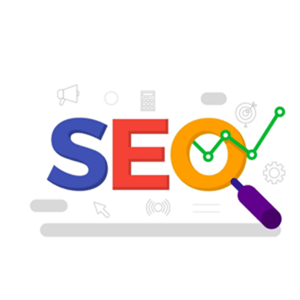SEO (Search Engine Optimization) is the practice of enhancing a website to improve its visibility and ranking on search engine results pages (SERPs). The goal of SEO is to attract more organic (non-paid) traffic to a website by ensuring that it appears prominently when users search for relevant terms or phrases.
SEO is a multifaceted strategy aimed at improving a website’s visibility and ranking on search engines, thereby attracting more organic traffic and enhancing user engagement. For the better service choose a reliable seo service provider company.
Key Components of SEO
- Keyword Research: Identifying the terms and phrases that potential customers use to search for products or services. Effective keyword research helps in understanding user intent and optimizing content accordingly.
- On-Page SEO: Optimizing individual web pages to rank higher and earn more relevant traffic. This includes optimizing content, meta tags (title, description), headings, images, and internal links.
- Off-Page SEO: Building the website’s authority and credibility through external factors. This primarily involves acquiring backlinks (links from other websites) and promoting your website on social media and other platforms.
- Technical SEO: Ensuring that a website meets technical requirements for search engines. This includes improving site speed, ensuring mobile-friendliness, creating an XML sitemap, and fixing crawl errors.
Understanding E-commerce SEO
E-commerce SEO involves optimizing your online store to rank higher in search engine results pages (SERPs) for relevant keywords and phrases. Effective SEO not only improves your site’s visibility but also drives targeted traffic, leading to higher conversion rates and increased organic sales.
Key SEO Tactics for E-commerce Sites
Keyword Research and Integration
Identify Relevant Keywords: Start with thorough keyword research to understand what terms your potential customers are searching for. Use tools like Google Keyword Planner, Ahrefs, or SEMrush to find high-volume and relevant keywords.
Incorporate Keywords Strategically: Place your chosen keywords in critical areas, including product titles, descriptions, meta descriptions, and URLs. Ensure that the keywords fit naturally and maintain readability.
Optimize Product Pages
- Create Unique and Descriptive Titles: Craft unique, compelling product titles that include primary keywords. Avoid generic titles and focus on providing valuable information about the product.
- Write Detailed Product Descriptions: Develop comprehensive product descriptions that highlight features, benefits, and uses. Include relevant keywords but prioritize clarity and usefulness for your customers.
- Use High-Quality Images and Alt Text: High-resolution images are crucial for e-commerce sites. Optimize images by using descriptive file names and alt text that includes keywords.
Improve Site Architecture and Navigation
- Implement a Clear Hierarchy: Structure your site with a logical hierarchy to make it easier for search engines and users to navigate. Use categories and subcategories to organize products effectively.
- Optimize Internal Linking: Use internal links to connect related products and categories. This helps search engines understand the relationship between pages and improves user navigation.
- Enhance Site Speed and Mobile-Friendliness
- Improve Page Load Times: Slow-loading pages can negatively impact user experience and SEO. Optimize images, leverage browser caching, and consider using a Content Delivery Network (CDN) to boost site speed.
- Ensure Mobile Compatibility: With a significant portion of users shopping on mobile devices, ensure your site is fully responsive and provides a seamless experience across different screen sizes.
Utilize Structured Data
Implement Schema Markup: Structured data, or schema markup, helps search engines understand your content better. Use schema markup to enhance product listings with additional information like reviews, ratings, and prices.
The Importance of Product Page Optimization
Optimizing product pages is crucial for e-commerce SEO. Well-optimized product pages improve your chances of ranking higher in search results and enhance the overall shopping experience for users.
Detailed Descriptions and Specifications
Provide thorough and accurate product descriptions, including technical specifications, sizes, and colors. This information helps users make informed purchasing decisions and can improve your chances of ranking for specific queries.
Customer Reviews and Ratings
Encourage customers to leave reviews and ratings for your products. User-generated content adds credibility and relevance to your product pages, which can positively impact SEO.
Engaging and Informative Content
Include videos, how-to guides, and FAQs on your product pages. Engaging content not only enhances user experience but also provides additional opportunities to target relevant keywords.
Enhancing User Experience
A positive user experience is integral to SEO success. Search engines prioritize sites that offer valuable, user-friendly experiences.
- Simplify the Checkout Process: A complicated or lengthy checkout process can lead to cart abandonment. Streamline the checkout process to reduce friction and improve conversion rates.
- Implement a Search Functionality: An effective search feature allows users to quickly find products, enhancing their shopping experience and increasing the likelihood of a purchase.
- Optimize for Local Searches: If you have a physical store or cater to a specific geographic area, optimize your site for local searches. Include location-based keywords and set up Google My Business for local visibility.
Conclusion
Incorporating these SEO tactics can significantly improve your e-commerce site’s organic search performance and drive more sales. By focusing on keyword integration, product page optimization, site architecture, and user experience, you can create a well-rounded SEO strategy that enhances visibility, attracts targeted traffic, and increases your online sales. Embrace these practices and watch your e-commerce store thrive in the competitive digital landscape.
SpaceEdge Technology: SEO service provider
SpaceEdge Technology understands the ever-evolving landscape of digital marketing. Our team is composed of seasoned SEO experts, creative content strategists, and tech-savvy developers who work in harmony to deliver comprehensive SEO solutions tailored to your unique business objectives.






